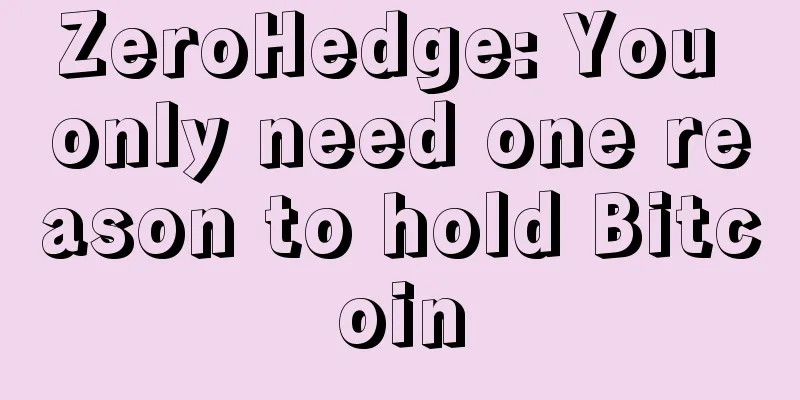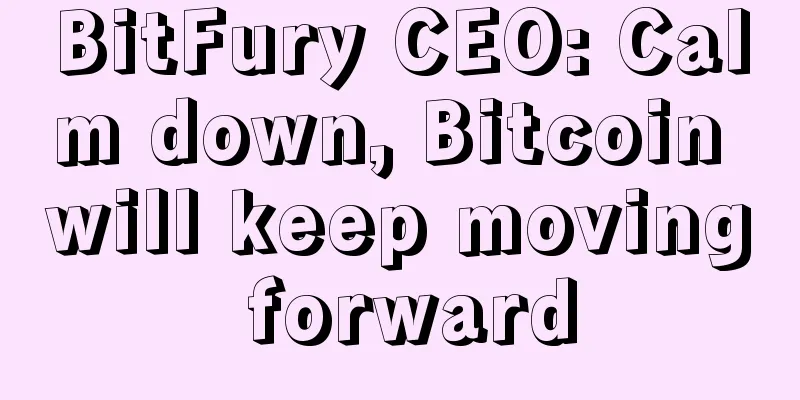ZeroHedge: You only need one reason to hold Bitcoin

|
In 1483, just as Johannes Gutenberg's new movable type printing press was gaining popularity in Europe, Bayezid II of the Ottoman Empire banned the use of the machine within his territory. At the time, the Ottoman Empire was the world's dominant superpower, having conquered much of the Middle East, North Africa, and Southeast Europe. However, Bayezid feared the new technology. He and his advisors believed that the invention of printing would only allow information and new ideas to spread more rapidly throughout his empire. They feared that this would threaten their rule and that it was blasphemous. So the king not only banned printing, he also stipulated that any civilian who used it would face capital punishment. The Ottoman Empire blocked new ideas. In fact, the only Western translations that entered its territory for the next three centuries were medical manuals. Needless to say, the Ottoman Empire’s dominance was not to last. During this time, Europe began to develop rapidly. A few centuries ago, most of Europe was just a poor and remote area with plagues, which was not known to outsiders. But by the mid-17th century, Europe was rising, in large part due to the popularization of printing. Printing was the internet of its time. Without this revolutionary technology, scientists like Newton would never have been able to "stand on the shoulders of giants." Much of the prosperity of Western civilization can be attributed to printing, which facilitated the sharing of information and ideas. This example proves that embracing new technologies can bring about significant changes in the course of social development. Most Western governments today might think they are very tolerant of innovative technologies. But this is just a superficial illusion, especially when it comes to the most disruptive technology in the modern world: cryptocurrency. Cryptocurrency is today’s printing press – a game-changing technology that the ruling class elite see as a threat to their control of the regime. That’s why they’ve introduced all sorts of ridiculous regulations and taxes to discourage cryptocurrency ownership – the technology is too disruptive. For eight centuries, ever since the Italian Renaissance, banks have enjoyed unparalleled power and influence. Bankers control the money, so they can control governments, laws, and even wars. For example, in the early 19th century, during a war with Napoleon, the fate of Britain lay not in the hands of the army but in the hands of the banking family of Rotherchild, which financed the army. In the early 20th century, it was J. Pierpont Morgan who started a revolution in Panama and installed a puppet government so that J.P. Morgan could pursue a lucrative canal project there. Just 10 years ago, it was the bosses of top Wall Street banks who coaxed the entire U.S. government into a multi-trillion dollar bailout, all at the taxpayers’ expense. The only reason banks enjoy so much power is because they control the money. But if you think about it, banks are just intermediaries that take money from depositors and lend it to borrowers. In fact, there is a joke circulating in the banking industry, which is the famous 3-6-3 rule: deposits cost 3% and loans cost 6%, so that you can go to the golf course to relax before 3 pm (a subtle satire on the high deposit-taking of banks). Cryptocurrency has the power to disrupt this ridiculous middleman monopoly. Think about it: when you send money to someone, the money moves from your bank to the central bank, then to the other party’s bank, and finally to the recipient’s account. This method of sending money is no different than it was 800 years ago… and it’s outdated, because today’s apps can send money directly to the recipient’s phone or email. Who needs middlemen? With so many P2P and crowdfunding platforms, who would borrow money from a bank? Why pay a bank high fees and commissions when there are so many websites that can exchange currencies for almost no fees? The existence of banks as financial intermediaries is as bizarre as the existence of taxi dispatchers in the age of Uber. Cryptocurrency and blockchain technology are the most important factors that determine success or failure, allowing you to actually hold your own savings instead of having the bank hold them. If this sounds confusing, think of your savings as "digital money" (money in digital form). Banks don't keep large amounts of physical cash in safes; your bank balance is just an entry into the bank's electronic database, which is fully controlled by your bank. They can squander your savings on some foolish investment frenzy, charge unreasonable fees without your consent, or even freeze your account (using security concerns as an excuse) or prevent you from withdrawing your funds. Cryptocurrency enables the decentralization of the system. You will become your own "banker" and there will be no middleman. This is the main reason why you should hold cryptocurrencies. This has nothing to do with price speculation. Too many people buy Bitcoin, Ethereum, etc. for speculation. That completely misses the point. The point is not to buy Bitcoin with cash and hope that it will be exchanged for more cash in the future. That would be no different than gold and silver. There are other ways to make money with less volatility and higher returns. The value of cryptocurrency is to help you stay away from an outdated financial system that will not miss an opportunity to exploit you. This is why cryptocurrency deserves to be understood. This is especially true if you’ve always been skeptical of the concept or have decided that Bitcoin is a “scam” long before you learned more about it. Cryptocurrencies represent the future of finance. Just as the adoption of new technologies can lead to social prosperity, cryptocurrencies can lead to personal prosperity. |
<<: How, when and where will regulators accept Bitcoin ETFs?
>>: Litecoin founder: Charlie Lee, Engineering Director of Coinbase
Recommend
Why can't you seize the opportunity?
Don’t think that missed opportunities are not mea...
Analysis of the fate of a woman with a high and narrow forehead What does a woman with a high and narrow forehead mean?
Women with high and narrow foreheads have a rough...
A woman with a high forehead
A woman with a high forehead The physiognomy sayi...
The most vulnerable facial features to domestic violence
The most vulnerable facial features to domestic v...
Will the connection of the end of the love line to the wisdom line affect the development of fortune?
There are many lines on the palm. Depending on th...
BitPay and Ingenico join forces to enable Bitcoin payments to 27 million merchants
Bitcoin payment processor BitPay has announced th...
Faces that require careful interaction
Faces that require careful interaction The face w...
Boys with short wisdom lines always live in poverty and helplessness.
Are boys with short wisdom lines good? The wisdom...
The most favorite snacks every day
There is a kind of temptation called the temptati...
Analysis of the face of a woman with a silver carp mouth
As one of the traditional physiognomy techniques, ...
Metaverse scams abound, asset security remains a top priority
"People are being scammed every day." I...
Bloomberg Industry Research Report: Bitcoin Price May Soon Approach $100,000
Bitcoin prices could soon approach $100,000 if hi...
What does a woman's big nose mean?
What does a woman's big nose mean? A person&#...
Mandarin duck eyes facial features
Mandarin duck eyes indicate wealth Characteristic...
Is it a good fate for a man to have a mole on the right side of his chin? What are the impacts?
Traditional physiognomy covers a wide range, among...









